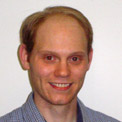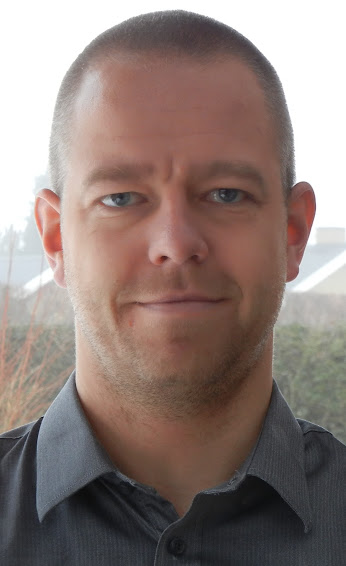Speakers
 |
Lounes Chikhi, CNRS, Toulouse / Inst. Gulbenkian Ciência, Lisbon Dr Lounès Chikhi (born Paris, France) is a French population geneticist of Algerian Berber extraction, based at the Université Paul Sabatier in Toulouse, France, and also at the Instituto Gulbenkian de Ciência in Oeiras, Portugal, where he runs the The Population and Conservation Genetics Group (PCG). |
 |
Inna Dubchak, JGI, USA Dr. Dubchak’s Ph.D. in Physical Chemistry had specific emphasis on Crystallography and Computational Methods. In the 1990’s, during her postdoctoral training at the University of California in Berkeley, she realized the potential of the emerging study of genomic data and switched to the fields of computational biology and bioinformatics. Since then, she has authored more than 100 academic articles and led a group that focuses on the analysis, organization, and visualization of large volumes of genomics information. Her team has developed a number of excellent visualization tools, including the VISTA family of programs for comparative genomics, which has become one of the major systems used by the biological community. The international popularity of the tools developed by Dr. Dubchak’s lab can be attributed to innovative features, exceptionally user-friendly and modern interfaces, and meticulous attention to biological details |
 |
Eran Elhaik, Sheffield University, UK Dr. Elhaik has completed a Ph.D. in Molecular Evolution in the University of Houston, studying the evolution of Mammalian Genomes. He then |
|
G. Arun Kumar, School of Chemical & Biotechnology, SASTRA University, India Dr Arun Kumar has been working in the field of human population genetics for the last 8 years. As a research fellow later a co-Investigator of The Genographic Project - India, he has sampled more than 4000 individuals across India to study their migratory history. Under the Genographic Project a set of select uniparental markers that included 56 Y-Chromosomal SNPs, 17 Y-STRs, 22 mtDNA SNPs and ~1000 nt mtDNA HVS sequences were used for genotyping to decipher the male and female routes of early human migration from Africa. Arun's Ph.D research work on Y-Chromosomal diversity of Tamil Nadu populations suggested that social stratification in this region influenced the genetic diversity. In addition, Arun's work also suggested a strong correlation of Y-chromosomal diversity of pan Indian populations to the linguistic diversity. His work on X-chromosomal recombination haplotype diversity of Indian populations sampled in this project suggested highly diverse population demes in southern India and confirmed an early settlement of people from one of the 1st waves of out of Africa migration. After the Ph.D program I Arun was part of the team (Genographic Phase-2) that developed a SNP array that contains 0.12 million Ancestry Informative Markers (AIM)-SNPs spanning the entire genome. Genotyping of select Indian samples on this chip was useful in developing an algorithm that could predict the geographic origin of sample based on the AIM-SNPs' genotype. |
|
|
Evgeny Rogaev, University of Massachusetts Dr. Rogaev, professor of psychiatry, works with Russian institutions in education and research in medical genetics, populations-genetics and neuropsychiatric disorders. At UMass, Rogaev’s laboratory in the Brudnick Neuroscience Research Institute focuses on molecular-genetics – attracting many students, postdocs, and researchers from Moscow. In Russia, Rogaev directs the Laboratory of Evolutionary Genomics, whose research interests among other areas include evolutionary studies of humans and animals using ancient DNA samples; genetic analyses of DNA from historic or forensic samples; population-based studies of genes responsible for the behavior and pathological aspects of human behavior; and identification of the genes of rare hereditary diseases. Rogaev and his work have been featured in local, national, and international media. In 2008 Rogaev was interviewed by CNN and other national media outlets for a story on the 90th anniversary of the murders of Czar Nicholas II and his family. Rogaev’s lab had conducted DNA research to analyze remains found in Yekaterinburg, Russia, confirming that the remains were those of the Czar’s children, Crown Prince Alexei and Grand Duchess Maria. See National Geographic News article. |
|
 |
Victor Solovyev, KAUST, Saudi Arabia Victor Solovyev (Soloviev) is a Professor in the Computer, Electrical and Mathematical Sciences and Engineering Division. He joined KAUST in 2013. He has previously served as a Professor of Computer Science in the Department of Computer Science, Royal Holloway College, London University (2003-2012). He was the Genome annotation Group Leader in Joint Genomic Institute, Lawrence Berkeley National Lab (2003) and was the Director of Bioinformatics at EOS Biotechnology (1999-2002). He formerly served as a leader of Computational Genomics Group at the Sanger Centre, Cambridge, UK (1997-1999). He also held positions of Assistant Professor at Baylor College of Medicine, computational scientist at Amgen Inc., visiting scientist at Supercomputer Center, Florida State University, Visiting Professor at ITBA (Milan, Italy) and a group leader at the Institute of Cytology and Genetics, Novosibirsk, Russia. Prof. Solovyev received Ph.D. in Computational genetics from Russian Academy of Sciences in 1985 and M.S. in Physics from Novosibirsk State University in 1978. He has published more than a hundred scientific publications, including chapters in 6 monographs and several textbooks for students. More than 100 software applications implemented as standalone programs or combined in packages, have been developed under his guidance. Scientific community actively uses these applications. For example, Fgenesh gene identification program has been used/cited in 2000 scientific publications, according to Google scholar data. |
 |
Robin G Allaby, University of Warwick Key interest areas: plant evolutionary genetics; evolution of plant domestication; molecular archaeobotany; molecular anthropology; phylogenomics; software design for population dynamics and molecular evolution. In my group we are interested in the evolutionary dynamics associated with the plant domestication process on several levels of organization: the gene, the genome, the population and the selective environment in which the population exists. We utilize genetic information directly from both archaeological and modern samples, and develop bioinformatic approaches for high throughput analysis. We also work closely with the archaeology community. Our empirical work is balanced by a theoretical approach, through computational biology, in which we study the complex evolutionary system which gives rise to the patterns of genetic diversity we observe. Using this in vitro and in silico two-pronged approach we wish to answer questions about where crops come from, and how plants such as crops become locally adapted to environmental conditions. Such information may help us in the future to produce crops which are better adapted to a wider range of conditions: the key to a sustainable future is to understand the past. |
 |
Joshua Akey, University of Washington Joshua Akey is a Professor in the Department of Genome Sciences at the University of He received a B.S. degree in Molecular Biology and Biochemistry from the University of Pittsburgh and Ph.D. in Human and Molecular Genetics from the University of Texas-Houston. He was a recipient of the Alfred P. Sloan award in Computational Molecular Biology and the William King Medal for his work in Neanderthal genomics. His current research focuses on understanding the evolutionary forces that influence patterns of genetic variation within and between species and the genetic architecture of complex and quantitative traits.
|
|
Hideaki Kanzawa-Kiriyama Dept. of Anthropol., National Museum of Nature and Science Reserach field: Biological anthropology (Molecular anthropology). My Ph.D research was dedicated to analysis of ancient mitochondrial and nuclear DNA analysis of northern Jomon people, who were the Neolithic hunter-gatherer in Japan. My current reserach interest is in investigating human history, especially the history of East Eurasians, Native Americans, and Japanese archipelago populations, from ancient and modern nuclear genome analysis.
|
|
 |
Morten Rasmussen, Natural History Museum of Denmark Dr. Rasmussen is currently post doctoral fellow at Stanford University, where he is exploring third generation sequencing platforms among other. He holds a B.Sc. in biochemistry, M.Sc. in Human Biology and completed his PhD on the applications of second generation sequencing in ancient DNA. Main research interests are focused on using complete ancient human genomes to investigate early human migrations across the world. He has long worked on development of novel methods and integration of novel technologies with ancient DNA. |
 |
Ryosuke Kimura, University of the Ryukyus Dr Ryosuke Kimura is an Associate Professor at University of the Ryukyus. His research fields are human population genetics and molecular anthropology. The goals of his laboratory are 1) to unravel the complicated history of Asia-Pacific populations using the genome diversity and 2) to reveal when and what selective pressures have acted in the past by identifying signatures of genetic adaptations. Another aim is 3) to identify genes associated with population-specific phenotypes in visible traits such as skin color, face, tooth and hair morphology, and other physical characters. These studies will lead to a clearer understanding of the process of population formation and genetic adaptation in modern humans. |
 |
Cécile Ben, Université de Toulouse Dr Cécile BEN is a plant geneticist from the University of Toulouse in France. With her colleagues in the ECOLAB laboratory, she is studying plant adaptation to environmental stresses (either biotic or abiotic) using the wild legume Medicago truncatula as a model. By making use of the wide biodiversity existing within this plant species and based on whole genome re-sequencing data of natural accessions, they aim at identifying key genetic factors (genes and small non-coding RNAs) involved in adaptive process to changing environment. By combining genetic and large-scale genomic approaches with population genomics, they intend to understand population structure and history as well as the contribution of micro-evolution in adaptation to environmental stresses.
|



